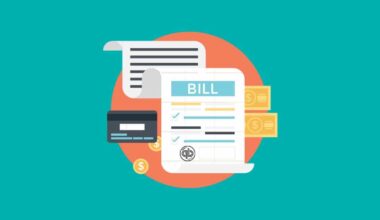Filing for Chapter 13 bankruptcy involves setting up a structured repayment plan, allowing individuals to pay off their debts over several years. A key figure in this process is the Chapter 13 trustee, whose role includes ensuring the debtor adheres to their repayment plan. Monitoring the debtor’s income is a vital part of this oversight.
How Does the Chapter 13 Trustee Monitor Income?
A Chapter 13 trustee plays an active role in monitoring a debtor’s financial status throughout the repayment process. This is crucial to ensure that the debtor has the ability to meet their obligations under the bankruptcy plan. Here are the key ways a trustee monitors income:
1. Reviewing Financial Documents
One of the first steps in the bankruptcy process is submitting a comprehensive set of financial documents. These typically include:
- Tax returns
- Pay stubs
- Bank statements
The trustee reviews these documents to assess the debtor’s income and financial health. Throughout the life of the repayment plan, the debtor is required to provide updated information regularly, allowing the trustee to verify that income levels remain consistent with the repayment schedule.
2. Reporting Income Changes
Any significant changes in income must be reported to the trustee. This includes both increases and decreases. For example:
- If a debtor gets a pay raise, it might increase their monthly payment to creditors.
- In contrast, a job loss or significant financial setback could lead to a temporary reduction in payments.
It is essential that debtors communicate these changes to the trustee promptly to avoid legal complications.
3. Modifying the Repayment Plan
The Chapter 13 trustee has the authority to request a modification of the repayment plan if there is a substantial change in the debtor’s financial situation. For instance, a debtor who experiences a prolonged period of unemployment might need to request a reduction in payments. This ensures that the plan remains feasible for the debtor while still being fair to creditors.
4. Ensuring Compliance with the Plan
The trustee conducts periodic reviews of the debtor’s finances to ensure compliance with the court-approved plan. If the debtor is not adhering to the terms—whether by failing to make payments or by not reporting changes in income—the trustee may take action, which could include:
- Filing a motion to dismiss the bankruptcy case.
- Requesting modifications to ensure creditors are being paid appropriately.
Responsibilities of a Chapter 13 Trustee Beyond Monitoring Income
While income monitoring is a major responsibility, the Chapter 13 trustee’s role extends to other areas of the bankruptcy process, including:
- Approving or rejecting the repayment plan to ensure it meets legal requirements.
- Reviewing and objecting to creditor claims if necessary.
- Disbursing payments to creditors according to the terms of the plan.
- Investigating the debtor’s financial affairs, ensuring that the plan is accurate and that assets or income are fully disclosed.
These tasks help the trustee ensure that the bankruptcy process is carried out fairly, balancing the rights of both the debtor and the creditors.
What Happens If the Debtor Fails to Report Income Changes?
Failure to report changes in income can lead to serious consequences for the debtor. If the trustee discovers that the debtor has concealed an increase in income or failed to report a loss that affects their ability to make payments, it may result in:
- Dismissal of the bankruptcy case, which can put the debtor back at risk for collection actions from creditors.
- Legal penalties for failure to comply with bankruptcy rules.
Transparency is key during Chapter 13 bankruptcy, as the trustee’s monitoring is designed to ensure the debtor can successfully complete their repayment plan and receive a discharge of remaining debts.
Conclusion
In Chapter 13 bankruptcy, the trustee plays a critical role in monitoring the debtor’s income throughout the repayment plan. By reviewing financial documents, overseeing income changes, and ensuring compliance with the plan, the trustee helps facilitate a smooth bankruptcy process. Debtors must maintain transparency and promptly report any changes to avoid potential legal consequences or case dismissal.
If you’re considering filing for Chapter 13 bankruptcy, it’s important to work with a knowledgeable attorney who can guide you through the income monitoring requirements and help ensure your plan is feasible for the long term.






